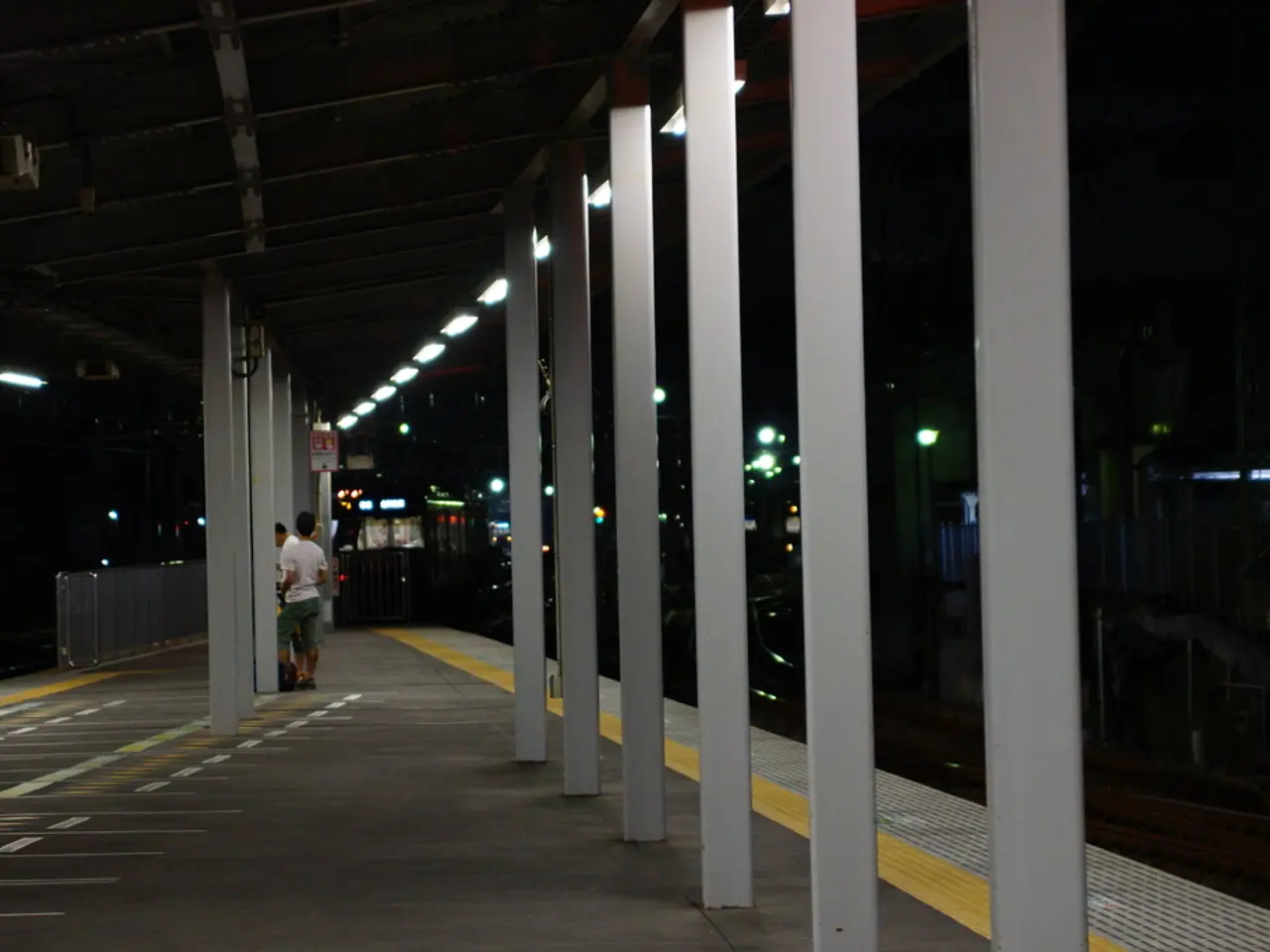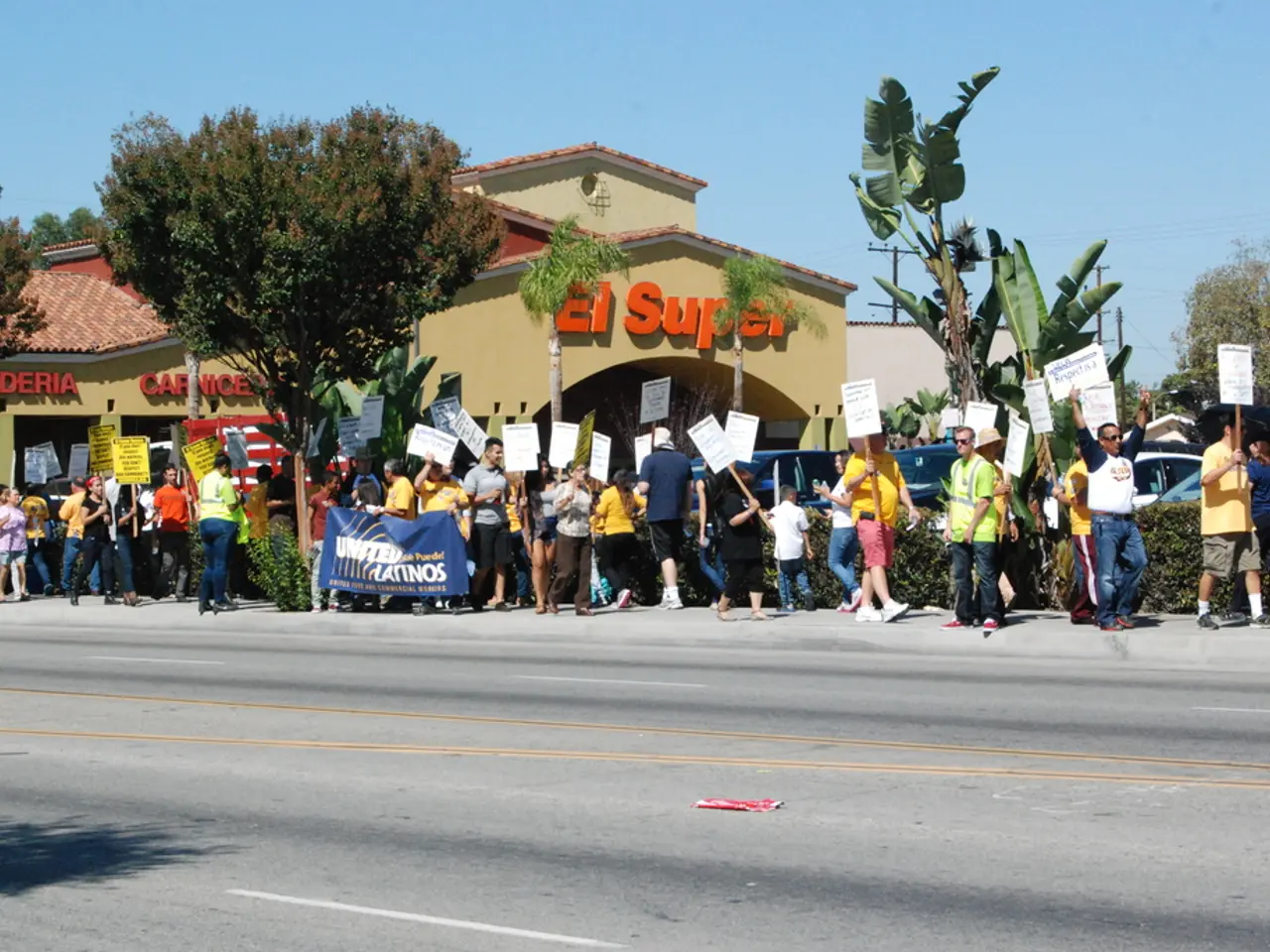Decision has yet to be ratified by the Commission.
In a recent proposal, Bavarian Minister-President Markus Söder suggested that Ukrainian refugees in Germany should receive asylum-seeker benefits instead of the current citizen's allowance. This move would result in a monthly reduction of 122 euros per adult. However, this proposal has sparked a heated debate, with critics arguing that such cuts would be unfair and could undermine integration.
Currently, Ukrainian refugees are entitled to the "citizen’s allowance" (Bürgergeld), equivalent to that of unemployed German citizens, including housing and health insurance. This equivalence is a point of contention in Söder's proposal, with critics arguing that it would be morally wrong and absurd for Ukrainians to be treated worse than people with a German passport, EU citizens, and other refugees.
One of the main concerns is the potential impact on integration. Critics argue that generous benefits do not discourage employment among Ukrainians, with many facing high unemployment rates. The labor market challenges, rather than benefit levels, are believed to be the root cause of this high unemployment.
Moreover, the proposal has raised concerns about precedent and humanitarian obligations. While the existing coalition agreement only calls for benefit reductions for new Ukrainian arrivals after April 2025, Söder's proposal would affect all Ukrainians already in Germany. This could create social and political tensions and put Germany's reputation as a humanitarian refuge at risk.
The cost and potential social unrest resulting from the cuts are also points of contention. While the payments to Ukrainians cost the German welfare system billions, opponents argue that the cuts could fuel social unrest and neglect the plight of war-displaced people, undermining humanitarian commitments.
In summary, the arguments against reducing benefits stress fairness, humanitarian obligation, and potential negative impacts on integration and social cohesion. Critics argue that Söder's focus on cost-saving and incentivizing work by lowering benefits to asylum seeker levels may not be feasible or effective for Ukrainian refugees in Germany.
It is important to note that asylum seekers in Germany receive reduced social benefits until a decision on their asylum application is made, after which they receive the citizen's allowance. The three-year time limit for asylum seekers whose application remains undecided would not apply to Ukrainian refugees protected through the EU's mass influx directive.
Both the federal government's and Markus Söder's proposals have been criticized as ineffective due to their potential to create inequality and social unrest. It may be more appropriate to increase the benefits for all other asylum seekers instead of reducing the benefits for Ukrainians. German politicians who cut the social benefits of Ukrainian refugees may find it difficult to prove their support for Ukraine in the future.
- The debate surrounding Markus Söder's proposal to change Ukrainian refugees' benefits from the "citizen’s allowance" to asylum-seeker benefits has raised concerns about policy-and-legislation and politics, as critics argue that such changes could be unfair, undermine integration, and potentially harm Germany's reputation as a humanitarian refuge.
- The ongoing discussion about reducing benefits for Ukrainian refugees has also intertwined with general-news, as critics contend that the focus on cost-saving and incentivizing work by lowering benefits may not be feasible or effective for this group, potentially creating social unrest and negating humanitarian commitments.





